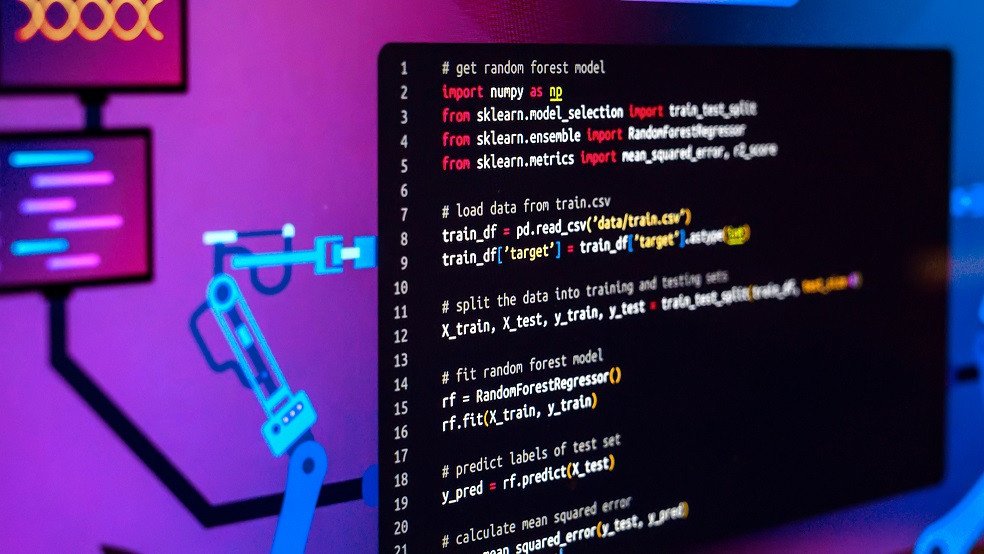A Beginner's Guide to Starting Programming.

Are you eager to embark on your journey into the world of programming? Whether you're a complete novice or have dabbled a bit in coding, this blog post is here to guide you through the essential steps to kickstart your programming adventure. Programming can be a rewarding and intellectually stimulating pursuit, and with the right approach, you can become a proficient programmer. Let's get started!
Step 1: Choose Your Programming Language
The first and perhaps most crucial step in your programming journey is selecting a programming language. The good news is that there's no one-size-fits-all answer to this question. The choice of language depends on your goals, interests, and the kind of projects you want to work on. Here are a few popular languages and their applications:
1. Python: Known for its simplicity and readability, Python is an excellent choice for beginners. It's used for web development, data analysis, artificial intelligence, and more.
2. JavaScript: If you're interested in web development and building interactive websites, JavaScript is a must-learn language. It's also commonly used for front-end development.
3. Java: Java is a versatile language used for developing Android apps, web applications, and large-scale enterprise systems.
4. C#: This language is ideal for developing Windows applications, games using Unity, and web applications with ASP.NET.
5. Ruby: Ruby is known for its elegant syntax and is often used for web development, particularly with the Ruby on Rails framework.
Remember, the key is not to get hung up on which language to choose. Pick one that piques your interest and aligns with your goals, as you can always learn more languages later.
Step 2: Focus on the Fundamentals
No matter which language you choose, there are some fundamental concepts and skills that are universal to all programming languages. These include:
1. Variables and Data Types: Learn how to declare and manipulate variables, which store data in your program. Understand the different data types (e.g., integers, strings, and booleans).
2. Control Flow: Master the concepts of loops and conditional statements (if-else) to control the flow of your program.
3. Functions and Methods: Learn how to create reusable blocks of code using functions (Python) or methods (Java, C#, etc.).
4. Data Structures: Explore basic data structures like arrays and lists to organize and store data effectively.
5. Debugging: Familiarize yourself with debugging tools and techniques to identify and fix errors in your code.
6. Problem Solving: Programming is all about problem-solving. Practice solving various coding challenges and algorithms to enhance your problem-solving skills.
Step 3: Build Projects
Theory is essential, but practical experience is where you truly solidify your programming skills. Start with small projects to apply what you've learned. Here are some project ideas for beginners:
1. To-Do List App: Create a simple to-do list application that allows users to add, edit, and delete tasks.
2. Calculator: Build a basic calculator that can perform arithmetic operations like addition, subtraction, multiplication, and division.
3. Personal Website: Design and develop a personal website using HTML, CSS, and JavaScript to showcase your skills and interests.
4. Simple Games: Develop classic games like Tic-Tac-Toe or a basic platformer game to understand game logic and user interaction.
5. Weather App: Create a weather application that fetches data from an API and displays weather information for a user's location.
Step 4: Seek Resources and Learning Platforms
Programming is a continually evolving field, so you'll need ongoing resources to stay up-to-date. Consider the following:
1. Online Courses: Websites like Coursera, edX, side lessons, and Udemy offer comprehensive courses on various programming languages and concepts.
2. Books: There are countless programming books catering to all levels of expertise. Check out beginner-friendly titles to build a solid foundation.
3. Coding Communities: Join online communities like Stack Overflow, GitHub, and Reddit's programming subreddits to ask questions, share knowledge, and collaborate with other programmers.
4. YouTube Tutorials: Many programmers share their knowledge through video tutorials. Find a YouTube channel that resonates with your learning style.
5. Practice Platforms: Websites like LeetCode, HackerRank, and Codecademy offer coding challenges and exercises to enhance your skills.
Step 5: Stay Consistent and Keep Learning
Consistency is key in programming. Set aside regular time for learning and practice, and don't be discouraged by challenges or roadblocks. Remember that programming is a skill that improves with practice and persistence.
In conclusion, starting your programming journey is an exciting adventure filled with endless possibilities. Choose a programming language that excites you, focus on mastering the fundamentals, build projects to apply your knowledge, seek out learning resources, and stay committed to continuous improvement. With dedication and determination, you'll unlock the world of programming and all the opportunities it has to offer. Happy coding!




